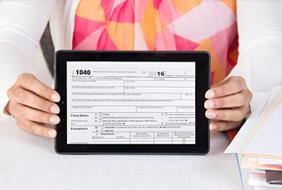
Only a few weeks ago, the Laws 39/2015, Common Administrative Procedure, and 40/2015 on the Legal Regime of the Public Sector, both of October 1, came into force. Through them an important reform has been materialized which especially affects the use of electronic media both in the internal management of the public sector and in relation with citizens. In particular, one of the main measures included in these regulations is the need to adopt, generate and keep all acts and documents in electronic format , and to process records using technological tools. In fact, in cases where the use of paper is allowed - as may happen when there is no obligation to use electronic records - it is necessary for documents to be digitized at the time of presentation. It is therefore an important step towards achieving the so-called zero paper goal, which aims to modernize definitively the performance of government and public sector bodies.
Nevertheless, in respect of access to the information found in their possession, the truth is that the reform of 2015 does not include anything new at least directly and explicitly. That is to say, even if no new measures specifically dedicated to promoting this objective have been contemplated, it should be noted that the commitment of the policy maker to widespread use of electronic media can be the breeding ground that, ultimately, provides not only accessibility of information in that format but also and above all in a format that facilitates reuse according to the principles inspiring open data.
However, it is therefore essential that the initiatives and projects carried out in the different government and public sector bodies are not limited to the mere compliance with those laws but, on the contrary, perceive that this is a new opportunity to transform their document management using the possibilities offered by technology. In this regard, at least the following considerations should be considered:
- the basic element to be taken into account cannot continue to be the document -now in electronic format - but the data, so it is imperative that management systems allow data to be processed individually;
- in this way, it would be possible to separate the data from the documents where it is incorporated, thus making it possible that only data which is not affected by a legal limitation - data protection , intellectual property, public interests worthy of protection... - is made available for reusers;
- the life cycle of document management needs to be planned from the first moment, when documents are generated or, where appropriate, incorporated into actions and procedures. In this way possible additional uses of data can be foreseen that differ from those that initially justify the collection and treatment thereof;
- the legal guarantees relating to document management have to be reconfigured, in such a way that both access limitations and the requirements of integrity, maintenance and updating of the data are fully adapted to the peculiarities of a preventive management model which has to look at the problems and difficulties that may arise in the future.
In short, we are facing a new opportunity to try to promote the accessibility of information held by the public sector electronically. But the expectations generated by open data will surely be frustrated if the opportunity is not taken to change the parameters that administrative management is normally based on. It is necessary, therefore, to prevent the scope of the reform of 2015 being limited only to the mere replacement of paper with electronic media.